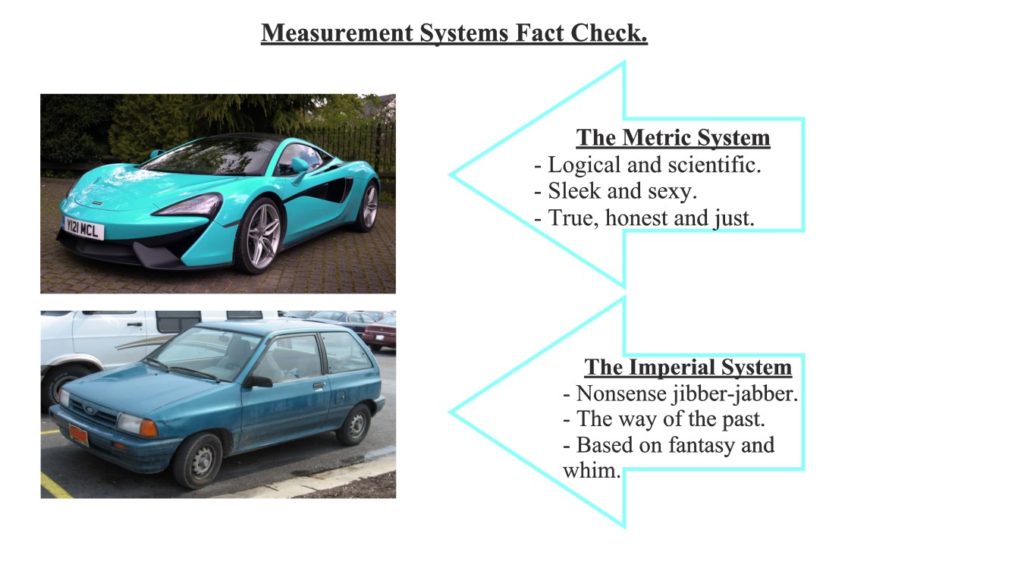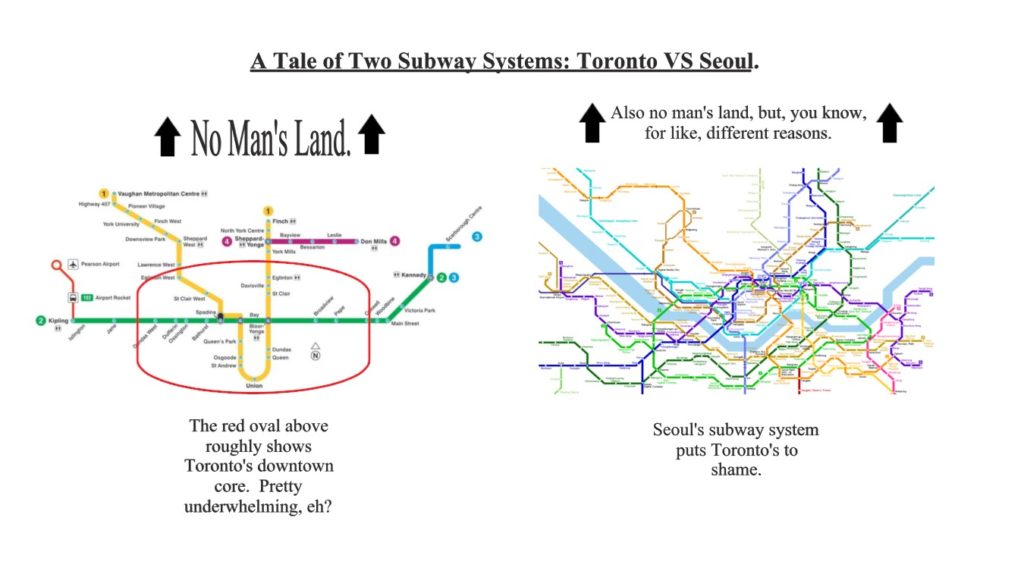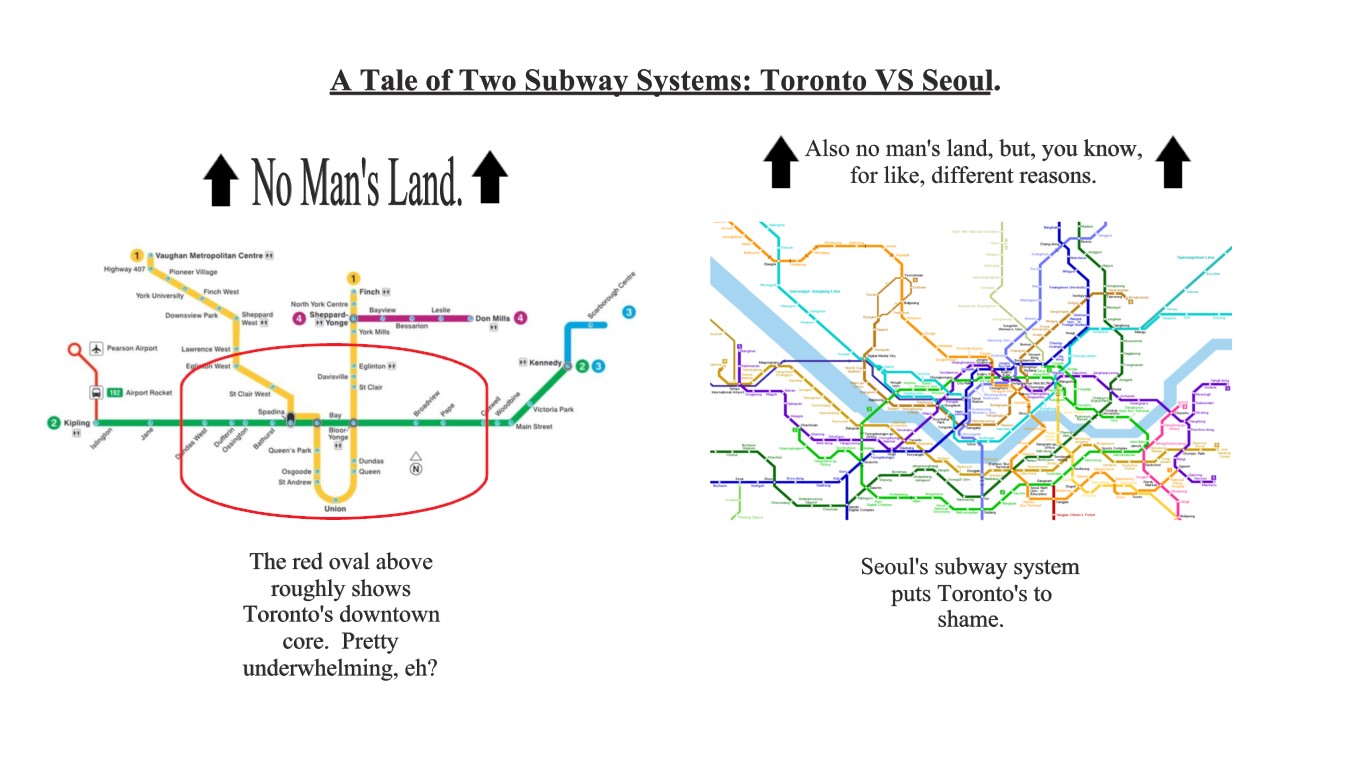Lessons for Canada from Korea
Written by William Urbanski
Things are done differently and often better in other countries. Ideally, these better ideas, systems, and concepts from foreign places can be imported to ameliorate life in our native countries. Whenever I get a chance to visit my home country, it’s an opportunity to reflect on some of the differences between Canada and Korea. My recent trip back home was no exception, and for some reason, several things really stood out this time and made me realize that Canada could stand to take a few lessons from Korea in a couple of key areas.
Can We Please, Pretty Please, Dog the Imperial System in Canada?
While Korea uses the metric system, Canada still relies on a hodgepodge, mixed-bag of weights and measures that in my mind would be best done away with. A country should only use one measurement system and it’s always struck me as odd that Canada, a country that’s a leader in so many other areas, still uses two measurement systems so prominently. And yes, while officially Canada adheres to the metric system, in practice, use of the imperial system is extremely commonplace, leads to unnecessary confusion, and is also super annoying.

As a side note, yes, I’m quite aware that most countries use different measurement units at times and for very valid reasons. For example, everyone in Korea uses pyeong when talking about floor space in buildings and homes. Pyeong and a handful of other vestigial units (such as the somewhat uncommon li, meaning about 4 kilometers) haven’t been completely usurped by the metric system because they have a specific utility or cultural purpose. But for those of you unfamiliar with the situation in Canada, the mixed-measurement system is on a whole different level, and it’s ridiculous.
On one of my first mornings back in Toronto, I walked to the grocery store to buy some apples. The price was listed in pounds, while the scale right beside it weighed kilograms. So, a few minutes later, I found myself in the position of being charged nine dollars for five apples, which I refused to pay. Apples and most fruit are cheap in Canada, and I know that a huge bag should cost less than five bucks. The mistake I’d made was to not convert from pounds to kilos because I’d assumed the scale measured the units described in the price. Even though everyone in Canada knows that this isn’t the case all the time, since I’ve lived abroad for so long, it slipped my mind to make the unnecessarily convoluted conversion between pounds and kilos.
As a second side note, it’s my strong personal conviction that the imperial system (inches, feet, yards, miles, gallons, and pounds) is trash. The only reason it’s used is because of convention and not because of some inherent logic or purposeful design. But I digress.
Canada’s Public Transportation System is a Hunk of Junk. A second area where Canada has really gotta pick up its game is its abysmal public transportation system. Compared to Korea, where public transportation, even in rural areas, is quite good, Canada’s public transportation infrastructure is, for a lack of a better explanation, an antiquated, dilapidated, dated, absolute joke of a public service and a relic of the 1800s when people had little reason to venture far from home. A personal example will illustrate my point.

My family’s homestead is a good 90 minutes north of Toronto in a village of about 1,000 people – a place where the local bowling alley/laundromat is the best place to access Wi-Fi. This countryside town is serviced by a bus that runs exactly twice a day, and I thought it’d be quaint and somewhat convenient to ride the bus down to the city. For apparently the first time in history, said bus was sold out, so my one-hour roundtrip (uphill-both-ways walk on a country road in the snow from my house to the gas station/bus terminal) was all for naught. In this case, I had other options and wasn’t in a tremendous rush, but anyone who would’ve needed to be on that bus would’ve been in a pickle.
Perhaps this is overstepping, but I feel like having access to good public transportation is basically a human right at this point in history. If you have to get around, you shouldn’t be forced into buying a car or living in a city. It’s tempting to point to Canada’s geography to explain why the public transportation there is so sparse, but the automobile industry should actually shoulder a lot of the blame. Aggressive automobile marketing (and other reasons such as incessant lobbying to public officials, which is a topic I won’t get into here) has people in Canada convinced that unless they have a new whip every three to four years, or ride the bus or subway by choice, they’re some sort of weirdo.
So there it is: If you visit Canada, mentally prepare yourself for a bunk public transport system and brush up on your weights and measures. In the interest of fairness, though, let’s talk about something for which Canada, specifically Toronto, could be seen as a cultural ambassador to Korea: believe it or not, people in Canada, more or less, follow parking laws! To combat the few rebellious souls daring to park where they shouldn’t, Toronto has started an interesting pilot project whereby illegally parked cars are towed onto nearby side streets, forcing offenders to call an officer, find out where their cars are, and walk their lazy rumps a few blocks away like they should’ve in the first place.
The Author
William Urbanski, managing editor of the Gwangju News, has an MA in international relations and cultural diplomacy. He is married to a wonderful Korean woman, always pays cash, and keeps all his receipts.





